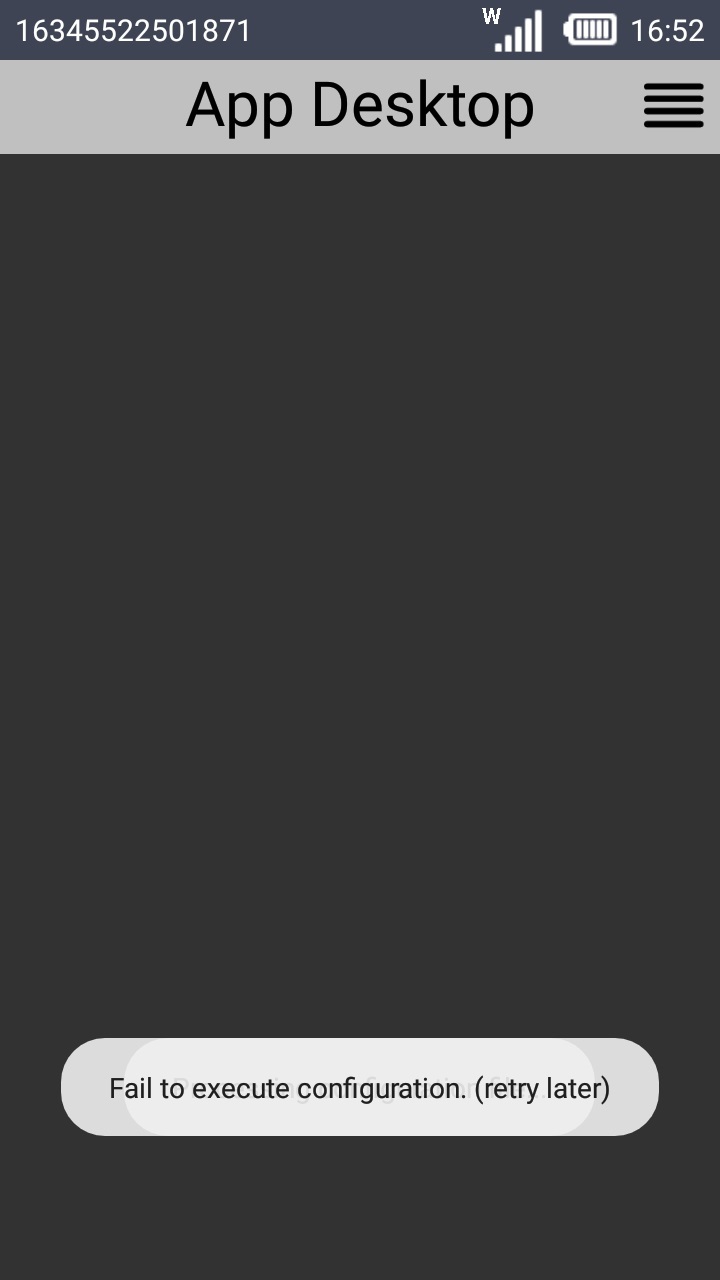Overview
MCL-License Manager allows you to activate an MCL-Client license unit in your device via a file (= an "*.mcfg" file).
The file with the necessary information is generated automatically and requires you to download it to your PC and install it in the required target device(s).
This feature is only available for target devices that are running MCL-Client V4.
Step-by-step
1. Access your MCL-License Manager account and open the pop-up window below (click  in the MCL-Client license's "License Activations" page.
in the MCL-Client license's "License Activations" page.

![]() Any security settings defined in the "Options" section (to the left) are automatically applied to the staging file. If you want to edit that section, do it before you proceed with the file download (step 2).
Any security settings defined in the "Options" section (to the left) are automatically applied to the staging file. If you want to edit that section, do it before you proceed with the file download (step 2).
2. Click ![]() to download the "*.mcfg" file.
to download the "*.mcfg" file.

3. In the resulting OS browser window, save the "*.mcfg" to your PC.
The details referenced in the downloaded file's name provide information on the destination for the device(s).
Ex: "Lic_1234_5678_9012_3456_78_20220308" (Lic_<license number>_<download date - YYYYMMDD>.mcfg").
The next steps are performed in the device where you want to activate the MCL-Client license unit.
Our step-by-step illustrates the options/screens that appear for an Android Zebra TC51 device.
![]()
Make sure the target device has the compatible/up-to-date MCL-Client version installed and running, meaning, that MCL App Desktop is open.

4. Connect the device to your PC, via USB, and wait for it to be detected.

5. Access the device's "Install" folder.

Path example: Android\data\com.mcltechnologies.android.client.XXX\files\Install
"XXX" represents the manufacturer's identification:
ATI - Atid devices
CPH - Cypher LAB devices
DTL - Datalogic devices
HON - Honeywell devices
HSM – Honeywell/Intermec devices
IMC - Intermec devices
M3M – M3 Mobile devices
MOT – Motorola/Zebra devices
PAN - Panasonic devices
SAM- Samsung devices
UNI - Unitech devices
6. Copy/paste the "*.mcfg" file you saved previously into the device's "Install" folder.

Below is the screen sequence displayed by the target device once the file is placed in the "Install" folder:
|
|
|
7. If you get the following pop-up window, it means the license activation code was generated with a PIN code setting (in the pop-up window with the License Activation Code). As a result, the operator MUST enter the required PIN code to conclude the license activation procedure.

![]()
This is NOT a default option. If you want to add this security option to the license activation code, generate a new one with a defined PIN code, download the new "*.mcfg" file and replace it in the device's "Install" folder. If, for security reasons, you want to permanently disable any previously downloaded "*.mcfg" files (or printed QR code version), you can revoke the license activation code before generating a new one. See Revoke a License Activation Code.
Once the license unit activation is complete, the target device should display an open App Desktop.

8. Return to your PC/your MCL-License Manager account, close the pop-up window with the license activation code and check the "License Activations" page to confirm if the license unit has been activated.
|
Ex: The registered MCL-Client license package had 2 available license units ready for activation (the left section of its page shows a total of 2 units and 0 activations).
After the described license activation procedure, the "License Activations" page for that license package has been updated - there is information on the recently activated unit (status, serial number and model of the device that is using the activated license unit, etc.) and the left section displays a usage of 1 unit. |
|
|
|
If required, it is possible to permanently revoke a current license activation code to prevent the use of any downloaded "*.mcfg" files (or printed versions of the corresponding QR code) - the "*.mcfg" file you downloaded onto your PC before revoking the license activation code becomes useless.
Step-by-step
1. Click
2. Confirm your action by clicking
3. Conclude the operation by clicking
|
Possible Error Message(s)
Error message shown after running the "*.mcfg" file in the device:

Possible Actions:
•Make sure the license activation code represented by the "*.mcfg" file has not been revoked/is still valid.
•Check if the license activation code has a defined expiration date and if it has expired.
•Make sure the "*.mcfg" file was placed in the correct device folder (= "Install" folder).
•Repeat the license activation procedure with an "*.mcfg" file you are sure is valid.